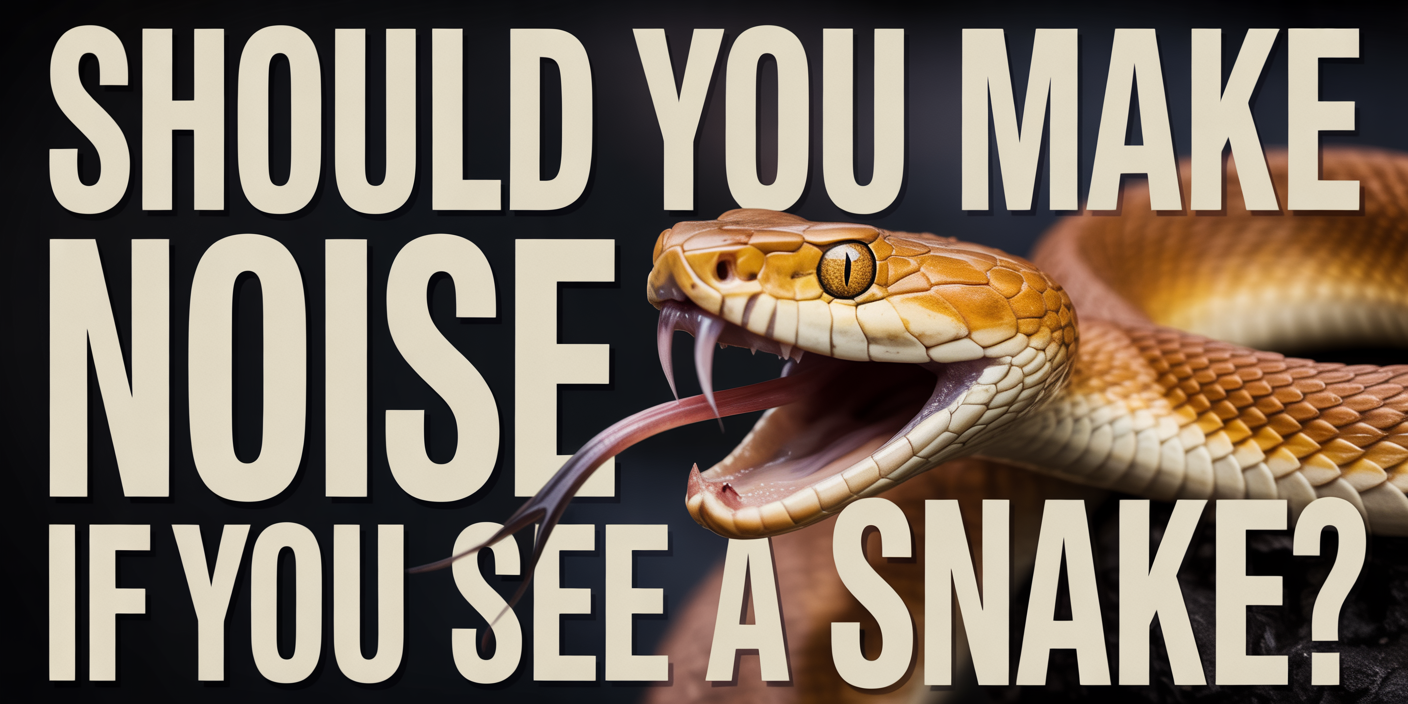Yes, making noise when you see a snake can be helpful. Most snakes aren’t aggressive and will retreat if they sense your presence through sound or vibration.
Spotting a snake in your yard, on a trail, or even near your home can jolt anyone into panic mode. The key to staying safe isn’t to freeze or flee blindly, it’s knowing how your actions, including the noise you make, influence the snake’s response.
Is It Safe to Make Noise Around Snakes?
In most cases, yes, making noise is a smart move when you’re near a snake. Snakes don’t have external ears like humans, but they can sense vibrations in the ground and often interpret those signals as a cue to leave the area.
Deliberate sounds like talking loudly, clapping, or stomping gently help alert the snake without startling it. This gives the animal a chance to slip away on its own, avoiding a defensive strike and keeping the encounter peaceful.
Can Loud Sounds Scare Snakes Away?
Snakes are more sensitive to ground vibrations than to airborne noise, so loud sounds alone don’t usually scare them off. Yelling or blasting music won’t do much unless it’s paired with movement that creates tremors in the soil, which snakes are more likely to pick up on.
That said, consistent low-frequency noise, like walking with firm steps or tapping a stick on the ground, can encourage snakes to move away before you get too close. Just avoid sudden, erratic noises that might make the snake feel threatened and more likely to hold its ground.
What Should You Do If You Encounter a Snake?
If you see a snake, stay calm and avoid making any sudden movements. Back away slowly while keeping your eyes on the snake, and give it plenty of space to retreat on its own.
Never attempt to touch, trap, or kill the snake, even if you think it’s non-venomous. Instead, contact a licensed wildlife removal expert like AAAC Wildlife Removal to safely handle the situation, especially if the snake is near your home or shows no signs of leaving.
Are There Situations Where You Should Stay Silent?
Yes, staying silent can be safer in certain situations, especially if you’re extremely close to the snake or it’s already in a defensive posture. Loud noises or sudden movements at that point could provoke it to strike rather than flee.
In these moments, stillness and quiet give the snake a chance to assess that you’re not a threat. Once it begins to move away or lose interest, you can slowly and calmly back off without drawing more attention to yourself.
Common Myths About Scaring Snakes Away
One common myth is that snakes will bolt if you scream or play loud music, but that’s not how their senses work. Snakes don’t hear airborne sounds the same way humans do, they respond more to vibrations through the ground than to your voice or noise from a speaker.
Another misconception is that certain sounds, like whistling or banging pots, act as universal snake repellents. In reality, these actions are more likely to startle humans than snakes. It’s better to rely on steady movement and vibration rather than gimmicky noise tricks that have no scientific backing
How Wildlife Experts Handle Snake Encounters?
Wildlife removal professionals approach snake encounters with calm, controlled movements and a strong understanding of snake behavior. They often use tools to gently create vibrations or guide the snake away, avoiding loud or sudden actions that could escalate the situation.
Experts also rely on protective gear and knowledge of local snake species to assess risk accurately. Rather than scaring the snake, their goal is to relocate it safely, minimizing stress for both the animal and the people involved.
Be Heard, Not Harmed
Making noise when you see a snake can be a helpful way to signal your presence and give the animal a chance to retreat. Most snakes aren’t interested in confrontation and will move away if they sense you’re nearby through steady, calm movements and ground vibrations.
Still, your safest option is to avoid cornering or provoking the snake in any way. If the snake doesn’t leave or is in a high-risk area like your home or yard, calling a professional wildlife removal service ensures everyone stays safe, including the snake.
Stay Safe, Let the Experts Handle It
If a snake is hanging around your property, don’t take chances with risky DIY tactics. The team at AAAC Wildlife Removal knows how to safely identify, handle, and relocate snakes without harm to you or the animal.
Call us today, and we’ll make sure your space is snake-free so you can enjoy peace of mind.




